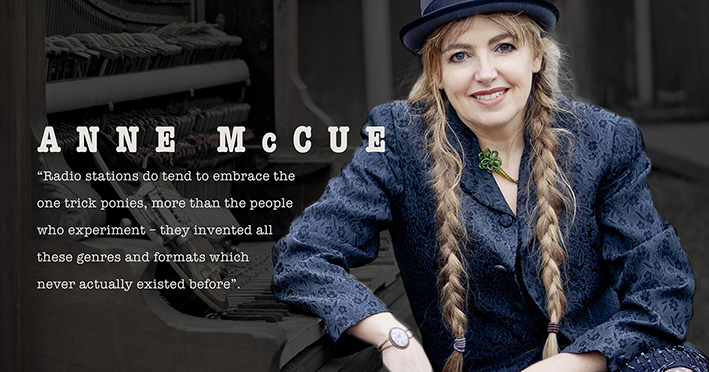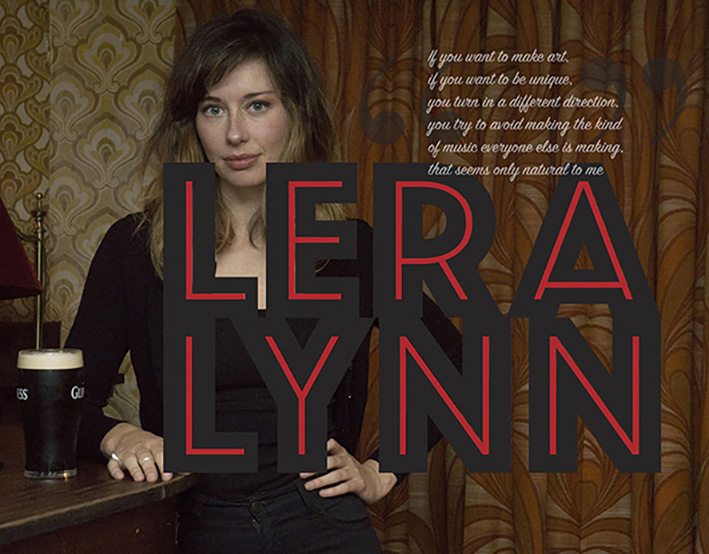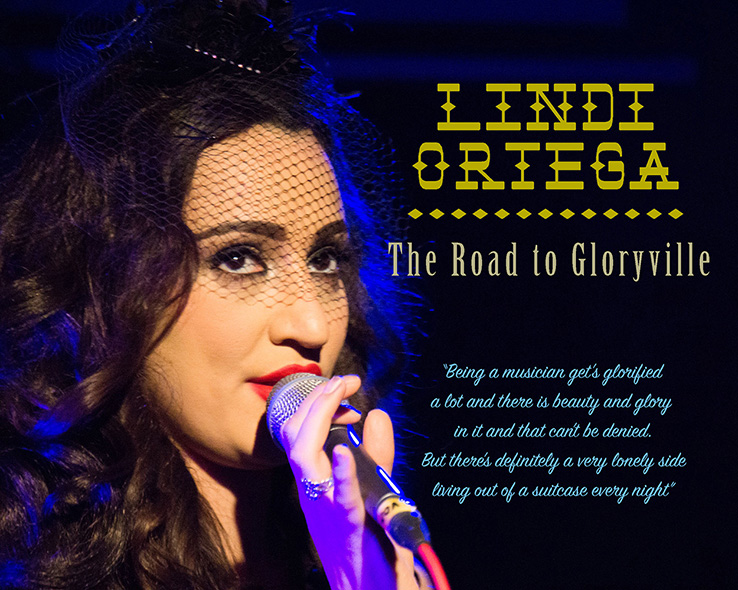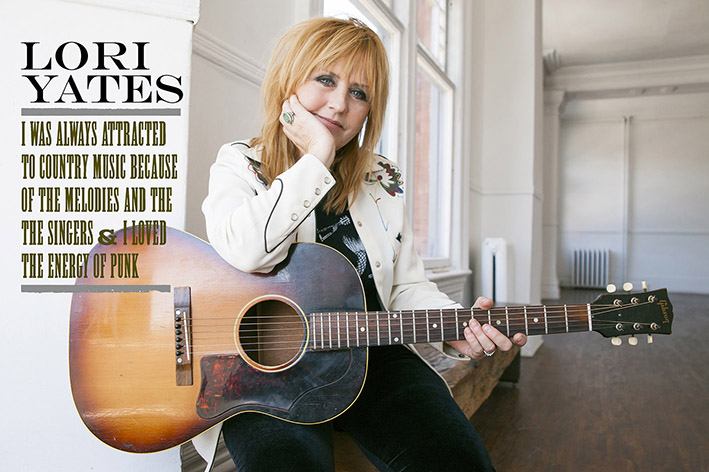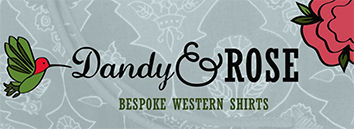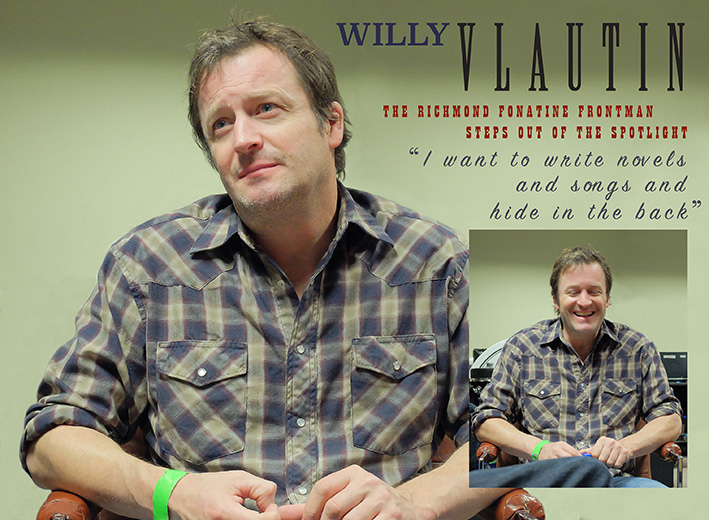
Richmond Fontaine, a place, a person, an ideal or a band? The latter most definitely as Richmond Fontaine were always a band. Willy Vlautin as the singer and main songwriter was always inevitably the focal point and the one who usually did the interviews. Through the years Lonesome Highway has been fortunate to be able to talk to Willy on his regular visits here with the band. He has always been a shy and somewhat reluctant spokesman but never less that obliging and completely honest in the answers he gave. Though this may be the last time that Richmond Fontaine appear in this guise we look forward to seeing him back with The Delines or on a book reading tour. Willy Vlautin is one of the good guys.
It seem like the time has come to bring a natural end to Richmond Fontaine’s career.
Our bass player Dave left. He moved to Denmark so we started to slow down then. So that’s when I started The Delines but I didn’t want to leave the band on the high country and I wanted to write one more record for the band for sure. Then when we did the record we all liked it so much and were proud of it and we were getting along so well that I wanted to leave the band in a better place than when it started. I didn’t ever want to have the conversation where one guy wouldn’t get in the van. Because he’s getting older or too tired or that we don’t make enough money. So I didn’t want to put anyone in that situation. I wanted to leave the band tattooed with good memories. The best way to do that is to leave when you’re really proud of it. It’s one of my favourite Fontaine records (You Can’t Go Back If There’s Nothing To Go Back To) so I thought that would be a good place to stop.
So what happens next for you?
I’m hoping to work with The Delines but Amy got hit by a car back in March. She got ran into the side of a building and broke both her legs. She’s just starting to heal up now where she can be on crutches. Which is a huge improvement because she couldn’t walk for 5 months. So when she’s ready we’ll start going again. We’re nearly done with the new record. I love playing music with Amy. It’s a really fun band; for such a sad band it’s the rowdiest set of people I’ve ever been with. So that’s what I hope to do. I want to write novels and hide in the back and write songs for Amy to sing.
Obviously your writing is still a big part of your creative process. How is that coming along?
I just sold my new novel to Faber & Faber and Harper Collins in the US so that’s a big relief to me. I just found out a couple of days ago. However no one likes my title . But then no one ever likes my titles (laughs). So it’s untitled at this moment but it’s done. I just have to do some edits when I get off this tour.
At this point in your career as a musician/songwriter and a fiction novelist you have achieved recognition. Does that afford you time to relax?
I’m kind of a workhorse. Because I’m so scared of having to go back and get a job to be honest. My girlfriend always says “relax, once in a while” but I’m just scared of having to go back to painting and working a shitty job that I always keep writing. I like writing stories. It’s my favourite thing to do but sometimes working so hard is a bad way to do it. I get kinda rattled. But in the end I like doing it and life’s short. I want to write a couple more novels.
In your last book The Free you used some different techniques to express the narrative including dream sequences.
I was really interested in the idea, which is more apparent now, of who’s a real American. I grew up in a household that got more progressively like that. “That’s a real American. That’s not a real American. if you don’t agree with this way of thinking you’re not a real American.” That idea is so insane, preposterous and ridiculous to me. So the only effective way for me to write about that was through a guy’s dreams. So to take this guy who’s not even a solider but a National Guard guy - the National Guard never say that when the country is overloaded with a war that their not suited to fight in but they bring in these guys. Rather they would say in time of tornado, earthquake or hurricane that they will be there. So I wanted to write about the effects on a normal kid getting sucked up into Iraq and the affects of that. Like in all countries their happy to send guys to war and then everyone turns their head when they come home. Which has happened as long as humanity has been around.
Are you at all politically motivated, especially in such a polarised climate as there is currently in the US?
Not really. Doesn’t affect me at all I live in the lefty haven of the US which is Portland, Oregon. One of the most open minded, coolest cities. I just surround myself with weirdos and musicians. But I did grow up in a really conservative home but my Mum passed away so I don’t have to deal with that on a real basis anymore. I’d be really interested to see what she would think of Trump because in so many ways he’s against so many things that I though she liked but I don’t know, though she would probably still be going for him.
How different is the writing process for you with The Delines as opposed to Richmond Fontaine?
Lately I have been writing instrumental music as I want to do an album for my new book. Then I’m just writing songs for The Delines. I haven’t written a song for me in months. I try to write classic tunes, best I can from my dented, small mind. I try to write songs that Amy can get behind like Dusty Springfield, Sammi Smith or Bobby Gentry. I try to write songs like that. I love doing it, it’s really fun. The story’s the same pretty much. I think it’s just my heart as I haven’t figured how not to write from that side of me. I just chase classic songs and hope that I stumble around one and grab a song like that and give it to her.
So does that mean that you immerse yourself in some classic soul music?
I’ve always liked that stuff. It was preposterous for me to sing that stuff. I could never sing half The Delines songs. I don’t think you could pay me enough to get up and sing a soul tune. I don’t have that kind of voice and I’m too shy … all of it. But when you take me out of the equation then I like soul ballads. But where I like soul music is in the lyrics of those ballads, the cheating songs, the stories. The upbeat, happy-go-lucky soul tunes I can’t do, I’m too dark minded I guess. As a kid I liked those soul ballads but I also loved ska, reggae. But the “baby, baby …” the ones that grooved never moved me. I’ve always been a lyric guy on top of it. Since I’ve gotten older I’ve liked the 60s and 70s soul but I wouldn’t be caught dead singing it. I’d be too embarrassed! I’m happy being a guitar player I could probably spent the rest of my life being with The Delines, I think. I’ve never been the best front guy so I think it would be nice to not be. It’s hard to do something you know you’re not that good at.
Do you have a timeline for the next album in the light of Amy’s recovery?
I’ve a couple of book things in the US that I’m doing until almost December. I’m only home for a couple of days before I go out to do that. Then in January the Richmond Fontaine guys and me are doing a cowpunk instrumental album for my new book. I got a handful of sad, weird melodies and I’m trying to convince these guys (Fontaine) to hang in there with me. Then I’ll hold tight to see what Amy’s doing. I’m hoping we can get her up to Portland to stay for month or two and get her back in the studio. It’s Sean and Freddie from Fontaine, a guy named Cory Gray, the keyboard player, and me. We’re hoping, once she’s well, to get back playing again.
Did the fact that you were featured in Uncut have a big effect on your status in Europe?
We sure got lucky there! Without that I probably still wouldn’t have a passport. (Back in 2004 Uncut ran a feature article entailed “Whiskey, Painkillers & Speed” about Richmond Fontaine written by the editor Allan Jones.) That was a really lucky break on so many levels. Maybe the luckiest break I’ll ever get. Being in Richmond Fontaine and getting to travel over here has been so much fun. Before that only one us had a passport, none of us had been anywhere except we’d just been driving around in a van in the US. So, I think that’s why when we got the chance to tour over here it was special. We were older I was was 35 when we started coming over here. At 35 if you haven’t gone anywhere there was a good chance you were never going to go anywhere. I was scared that I was never going to get to see anything of the world.
What was that like,those first visits outside America?
It was fun. The first time you’re going through an airport and you’re carrying your guitar and you’re thinking “I’m going somewhere” you feel so proud. I remember one of the first times we toured there was a guy who was loading baggage who was a fan of Richmond Fontaine and he came up and he’s been loading our guitars into the hold. He wanted to know “where are you guys going? Are you touring?” We were going “this guy knows who we are!.” Like the first time we came to Ireland we were like “is this Candid Camera? Are they going to make fun of us ‘cos they’re clapping and I don’t know who they’re listening to. Why are they clapping for us?”. It was all lucky. Kilkenny (Rhythm & Roots Festival) was so much fun. Hanging out with people who like music … just lucky breaks.
How has the shift in the way people consume music affected you?
When you go to Scandinavia now no one buys anything anymore, everyone’s Spotify. You get a lot of people at the shows but no one is buying anything. Because there’s no distribution you have to pay for publicity, which you can’t really afford when you don’t sell anything. I don’t know as I’m not the best businessman. I just keep my head down. I got fired (laughs) in like ’97 from having anything to do with money for Fontaine. We played really bad one night and I felt bad that we had because we were so drunk and I didn’t think we were any good so I didn’t take the money. When I got in the van the guys asked how much we had made and I go “well I didn’t think we played well and there weren’t that many people there and they went ‘You’re fucking fired!’” I was so happy as I’m not the best at that stuff.
Physical sales of both books and music are going through changes. What are your thoughts on that?
The CD was a great era as the mark-up was so much. So once we went out on our own we were making a CD for 2 bucks and you sell them for 10 or whatever. That was great for a small time band. When we started putting out our own records was when we started to stay in motels. We were able to get brand new tires for the van rather than used tires. Stuff like that, we ate in restaurants. Record companies made a killing on the CDs. They could do them for like 20 cents because there doing millions or whatever. I’m a vinyl guy so I’m excited that our stuff is now on vinyl. When we started you might do a 7” but you would seldom do LPs. Spotify is amazing. I got it to record records as I do a lot of work with this producer and might need to find something. He’ll often send me a list of 10 songs to listen to and I’ll go there to listen. You can’t fight that. For bookstores Amazon is the devil. They have a programme that when you take a picture of a book cover in a bookstore and you send that picture to Amazon they will give you an extra 20% off their already low cost. That’s horrible, right? But it’s so easy and convenient for people. So Amazon wins and the bookstores struggle. It takes a lot of effort to only shop in your local book or record store and make a choice. There is, though, a swell of some independent bookstores doing ok. In the US anyway you have to be pretty savvy, like owning a record store, as as it was in the old days it’s pretty much a labour of love - or maybe have a rich spouse (laughs). That gets you out of the gutter once in awhile. You’re not going to make a lot of dough running a bookstore. But they are surviving and I think a good bookstore owner can guide you better, with records you can find out really quickly if you like a band without anybody’s help, but with books you need someone to understand your taste as it’s hard to browse Amazon and to find the right book
Do you enjoy the book reading/signing process?
I like the fact that I’m not as insecure (in a book reading context) as they are there to hear me, I always feel that I’m the weak link of any band I’m in or with anything I’m doing, so I’m not as insecure about the books as I am about the songwriting I guess. It’s the only time I really around people who like books. The guys in Fontaine read books but most musicians are that big readers - that I meet anyway. So reading in bookstore means I get to hang out with people who love books. It’s one of my favourite things. When I did the reading in Dublin and was interviewed by Roddy Doyle it was one of the greatest nights of my life. I went to the Stag’s Head and had a beer with him and I’ll never forget that. He’s an inspiring guy on so many levels. A lot of what he said made a lot of sense to me. My Grandma bought me The Commitments when it first came out and I’ve read everything his since. So I’ve always been a big fan. He’s a cool guy to top it off. I really like the work ethic of writing novels.
Another author who has brought out CDs to accompany the launch of his books is the Irish writer John Connelly.
I have met him a couple of times at festivals. He’s also very cool. I hung out with the crime writers there. They’re the ones that are the most fun. They made the most money so they’re pretty happy and they like music. They love crime books and novels. I hung out with him and some other crime writers. I loved hanging out with them as sometimes when you’re with the literary writers they aren’t much fun. They don’t talk about music and they bitch about their jobs as professors. The crime writes are the ones wearing leather jackets and buying expensive drinks (laughs).
You have always expressed a fear, built of shyness, of getting up onstage as a front man. How have you coped with that?
As I said I’m not meant to stand in front of a bunch of people singing. When you’re a kid in a rock band you think it’s going to save your life. I loved records so much that I wanted to eat them! But I didn’t know what to do so I figured that I’m just going to have to join a band but I was barely able to go to school I was so shy. I even had a hard time going to a store. The reason I’m probably not stuck in a warehouse and only shopping at midnight is from being in a band. I didn’t play sober from 15 to 30, around then. Then I quit drinking before gigs but before that I was always shit-faced drunk for over 10 years. It was horrible and I’d be half way through a gig and I could barely stand. Your anxiety is gone because you’re doing it and your relaxing but you go “oh shit, I’m really drunk now.” If you’re really adrenalised you can drink a lot and I’d been half way through a gig and I’d realise that I could barely stand. I’d feel that I couldn’t physically get through the gig and I’d be chasing that the whole time. So if it took a guy 7 hours to come see our band and he was sleeping in his car afterwards and he had to drive back to go to work and I was really drunk and I’d played bad and I was so ashamed of myself that I realised that I’d have to quit playing music or overcome my fear. So then I started drinking an hour before a gig. Then a half hour before, then just two beers before the show just to get through. I was ashamed of that but that’s I cured that. Being in a band did that for me.
Interview by Stephen Rapid Photography by Kaethe Burt O'Dea





